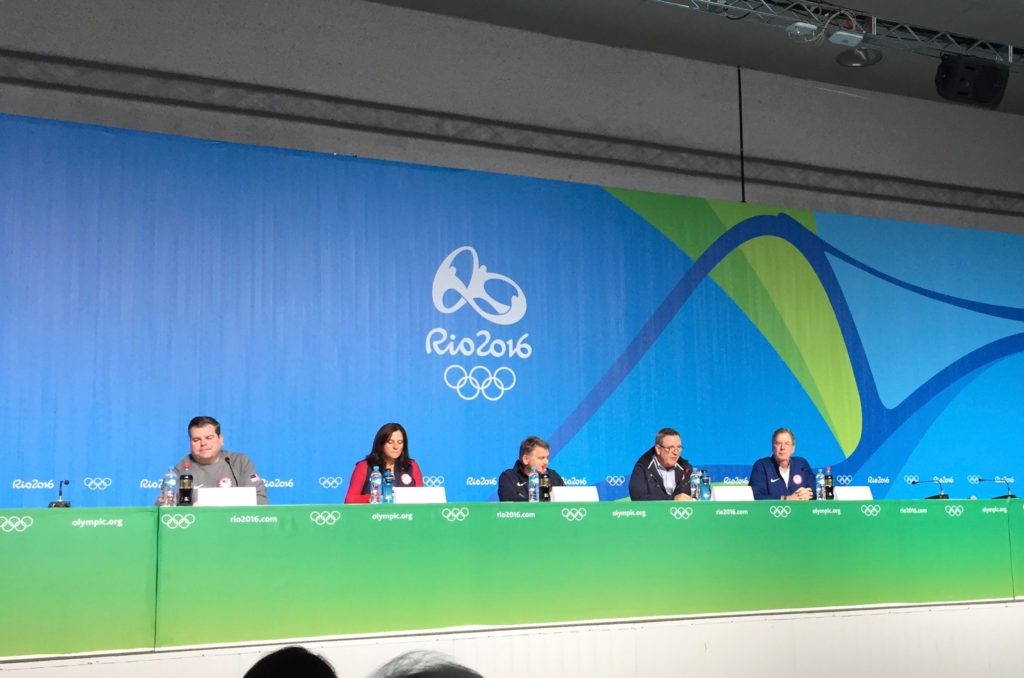Top executives of the U.S. Olympic Committee held a press conference at the Olympic Park media center and said they were pleased with the athlete’s village, venues and cooperation they have received from the Rio 2016 Organizing Committee.
“Things are going really well for our team,” said Alan Ashley, the USOC’s chief of sport performance and the U.S. chef de mission for the 2016 Games. “We’re getting great training at the venues. Our housing is pretty much up and running and as of today we’ll be at capacity. Every time you’re going to the Olympic Games you’re basically opening up a 13,000-bed giant organization of food services and housing and transportation and everything else. I don’t think I’ve ever experienced a Games that didn’t have to get some things worked out. But as I go around and talk to our athletes and ask them how are you doing, how are you feeling, how are things working out, they are very positive and excited to be here. I’m very pleased and I’m very happy with the partnership we have with the Rio 2016 Organizing Committee.
USOC CEO Scott Blackmun said U.S. officials have received cooperation from the organizing committee. “One of the reasons our athletes are so happy is the people working for Rio 2016, whether it’s the staff or volunteers, are making everyone feel good. It’s obvious they’re trying really hard. It’s obvious they had a lot of challenges put in their way whether it was political challenges or economic challenges. But we feel unequivocally that the team that’s supporting us from Rio is incredibly dedicated and, frankly, a joyful team. We feel very welcome here.”
Sponsored Content
USOC officials took several questions about the recent doping controversy involving Russian athletes. Despite consideration of a full ban on all Russian athletes following an independent report of a systematic doping operation at recent Games, the IOC has allowed national governing bodies in each sport to determine eligibility of Russian athletes. The result has been a mixed bag with track and field and weightlifting athletes, among others, being banned, while more than 270 other athletes will be allowed to compete.
USOC Chairman Larry Probst, a member of the IOC, said there was no easy solution to the issue for IOC members. He said he supports the creation of an independent organization that can be properly staffed and funded, and with investigative powers, to authorize and sanction offenders.
“This is not just Russia, this is a global problem and it’s something that has to be addressed as quickly as possible,” he said. “I hope all the constituencies—the IOC, WADA, the federations, the national Olympic committees and the athletes—all get on the same page and work together to solve this problem as quickly as possible.”













 Copyright © 2025 by Northstar Travel Media LLC. All Rights Reserved. 301 Route 17 N, Suite 1150, Rutherford, NJ 07070 USA | Telephone: (201) 902-2000
Copyright © 2025 by Northstar Travel Media LLC. All Rights Reserved. 301 Route 17 N, Suite 1150, Rutherford, NJ 07070 USA | Telephone: (201) 902-2000